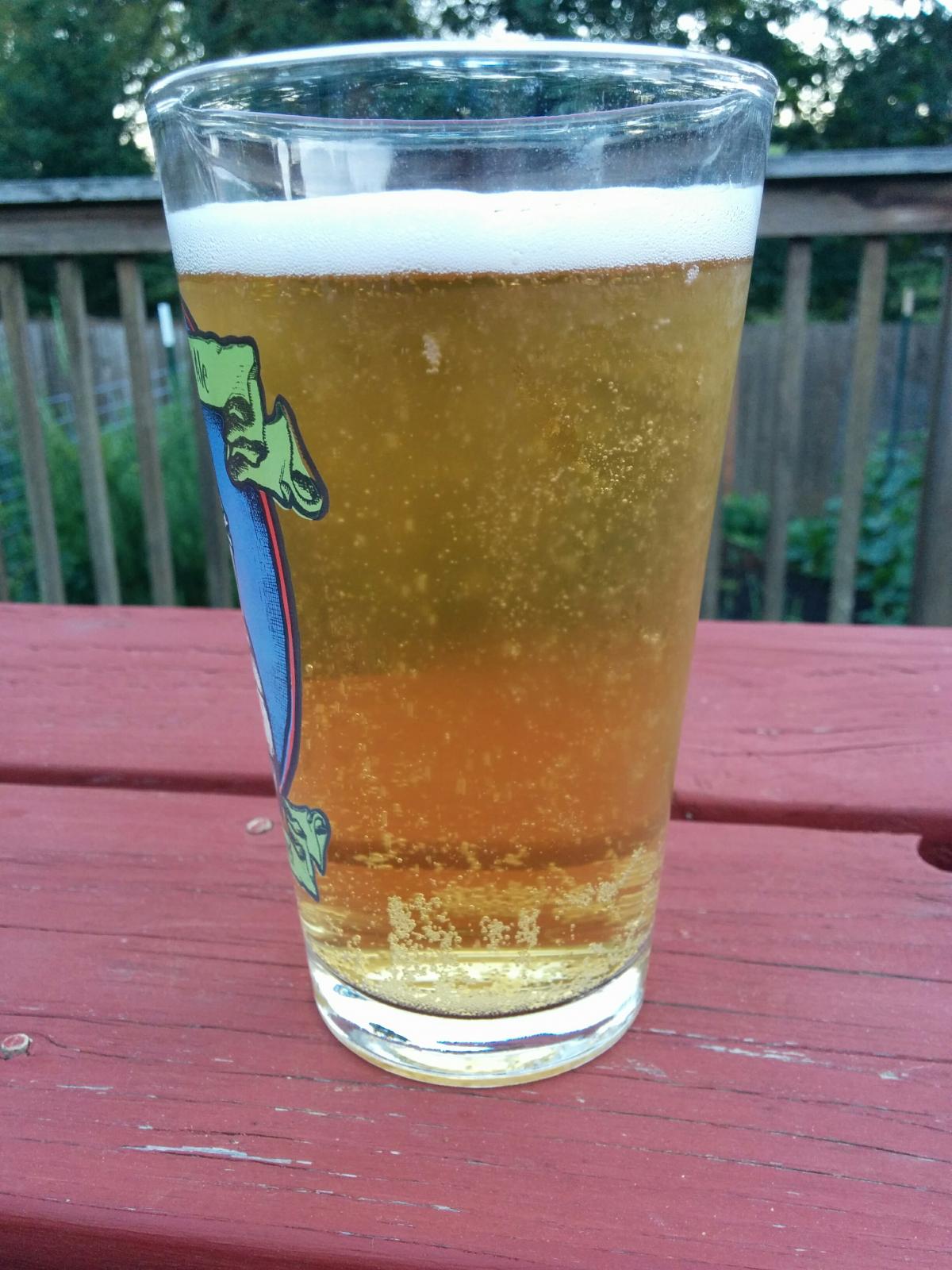applescrap
Be the ball!
Well, I have a pretty good palate. I think in many cases, the opposite is true. Cake is more forgiving. A bit more flour, sugar, salt, chocolate? Meh, it'll be about the same.
As an example in beer, say you use cascade hops instead of noble hops in a typical lager recipe. I can smell/taste cascade hops a mile away. Even with .5 ounces of cascade hops vs .5 ounce of hallertauer, I will pick up on that right away, and the flavor profile wouldn't even be a bit close.
That's not to say that your beer with cascade hops is bad, but it would not be anywhere near a dunkel. I would tell just from the aroma.
Remember that while some people genetically cannot taste diacetyl, many others can in ppb- that's parts per billion. Same is true with many other substances.
I love that you love your beer and it's awesome. But remember that some of us have many years (often, decades) of experience and not just from reading. Not only are we pretty successful brewers, we are trained BJCP judges, and have had a lot of beer "samples" sent to us. Few are as great as the brewers claim (due to the ugly baby syndrome I suspect, but could be due to a poorly refined palateon behalf of the brewer), so any claims that a lager fermented at room temperature that used cascade hops tasted just like a commercial Munich Dunkel is going to be suspect I'm afraid.
I really abhor blanket statements, and would never say that all of Narziss' writings are bunk because Marshall make a non-scientific ex-beeriment (even Marshall wouldn't make such a ridiculous claim), and I'd again caution that while your anecdotal experiences are valuable and worth sharing, I'd not come across with an "all or nothing" approach.
Thank you yooper for your thoughtful response. You always bring up insightful points. Good to know about the cakes. I think i have been taking my cake making way to serious. Brings up a key point to me, we are all very interested and serious about different things. Get me talking about golf or coffee and i am way more involved. I never had a pony in this race. Never did. From day one i have brewed kind of like you and the cake. From the day i was told biab wasnt "real" brewing i have remained sceptical. The guys at my lhbs still think biab is a lesser quality of brewing. I think i have asked you how many warm fermented lagers you have made or have tasted. Im still curious.
You kind of help make my point with the cascade hops. I would think that 60, 90, 45 minutes whatever would leave the hops without much origin or flavor, but indeed some cascade qualities do remain. The point being is cascade in, cascade flavor out. German hops in, german hops out. Sure this dunkel tastes like a dunkel with cascade hops. Better some would say, worse some would say, not in style others would say, and different i would say.
Nobody said narziss's writing was bunk. I think its a given that his/her? methodology works. That is not what is in question. What is in question (by me) is if his methods are the only way to brew a lager here and now at home. This doesnt mean he is bunk just that there could be another way. I try not to make blanket statements although im sure i do at times and it is good to know that you abhor them. Honestly, i think you abhor me and that is ok. You always remain respectful and make your points eloquently. I think if we met and spent some time together, you might find we could really enjoy each others thinking about brewing. Ill send you the lager if i can.
How many homebrewers like myself have been turned off to these great styles because we dont have temperature fridges and have been told it will never work? Isnt this kind of questioning right in line with the spirit of homebrewing. I will continue to brew these lagers and see where it leads and encourage others to do the same. In doing that i will try to avoid all or nothing thinking as you know i am always willing to consider reconsidering.




















![Craft A Brew - Safale BE-256 Yeast - Fermentis - Belgian Ale Dry Yeast - For Belgian & Strong Ales - Ingredients for Home Brewing - Beer Making Supplies - [3 Pack]](https://m.media-amazon.com/images/I/51bcKEwQmWL._SL500_.jpg)






































